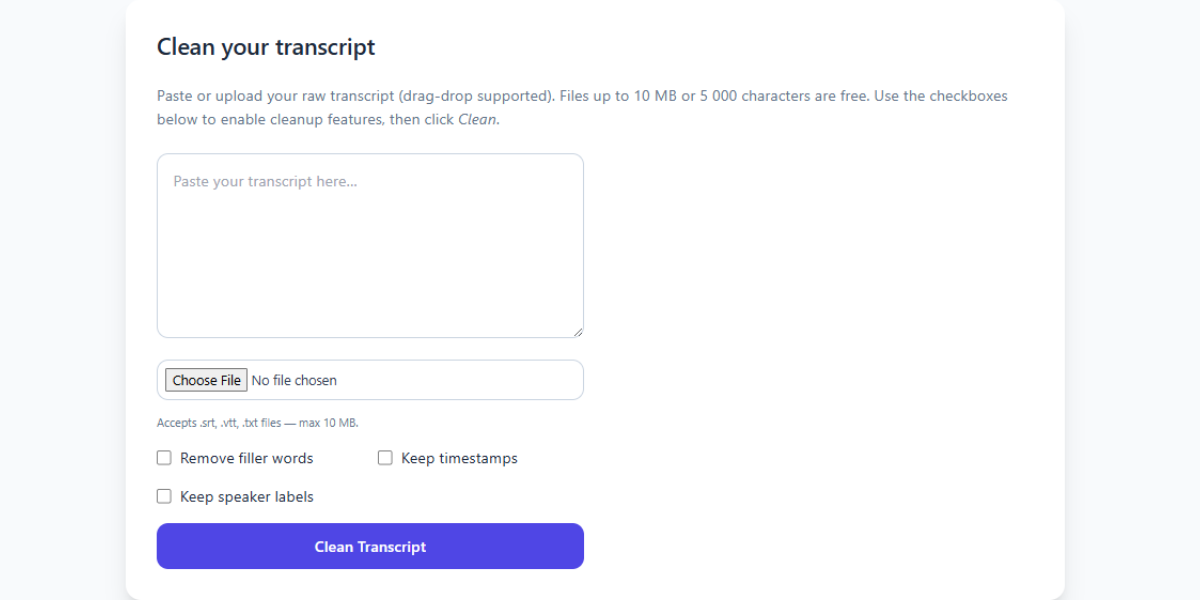
Video vs. Podcast Transcripts: Cleaning Techniques Compared
While both media rely on speech, their transcripts differ in structure and audience expectations.
1. Visual Context vs. Pure Audio
- Video: Viewers can see gestures and slides; transcripts supplement.
- Podcast: Transcript is the only visual element—clarity is critical.
2. Timestamp Density
- Video: Timestamp every 30 seconds to sync with scene cuts.
- Podcast: Every 60–90 seconds keeps text readable.
3. Speaker Cues
Multi‑guest podcasts demand explicit labels. Solo vlogs can skip them.
4. Show Notes Integration
Podcast transcripts often merge with show notes—use H2 headers for segments to improve skimmability.
Pro Tip: Add internal links from each podcast episode page back to your main Transcript Cleaner tool for enhanced site structure.
Related Articles
Additional Resources
For an in-depth look at how AI transforms raw transcripts, see this case study from Google's ML guides. Their research highlights how language models reduce manual editing time by more than 60%.
Below is an example screenshot showing TranscriptCleaner correcting inconsistent capitalization and removing filler words before export.

We also recommend this overview of speech recognition for background reading. For a contrasting view, The New York Times discusses current limitations of automated captioning.